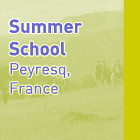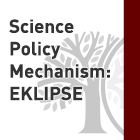Training course: Science Communication for Public Debate
| When |
Jun 27, 2012 01:00 AM
to
Jun 29, 2012 01:00 AM |
|---|---|
| Where | Ispra, Italy |
| Contact Name | Michel Chiaramello |
| Add event to calendar |
|
In the framework of the JRC enlargement and Integration action, the JRC Ispra is organizing a course entitled 'Science Communication for Public Debate', which will be held in Ispra (Italy) from 27-29 June 2012 (3 days).
The number of place is limited to 15 persons and open to experts from the new Member States, candidate countries, potential candidate countries, FP7 associated countries, European Neighbourhood Policy countries and Russia as well. Interested persons are invited to fill in and send the application form attached by end of May 2012.
Abstract of the course
Where science is a relevant input in policy making processes, communication of science becomes a primary task for those involved in promoting public engagement in those processes. Neither popularization of science solutions nor science education approaches are appropriate, because the objective is not to educate the publics but rather to engage them in the research’s products, as well as to make them part of the process. New forms of dialogue and new mechanisms for introducing scientific issues to (most likely) non-scientific audiences call for communication processes that deepen the interface between the scientific processes and products and the audiences. In this course we will start with a critique of the “public understanding of science” (PUS) ideas and associated “deficit model” deemed responsible for science controversy and we will instead working on science communication practices that genuinely engage publics with the policy relevant scientific issues that need to be debated, scrutinized and deliberated. In an era of the digital permeating all aspects of life, science communication in contexts of publics engagement as described earlier, great challenges and opportunities arise, therefore the course will also highlight such context, besides the other more traditional media contexts.
For more information and registration, please contact:
Michel Chiaramello, [email protected]







